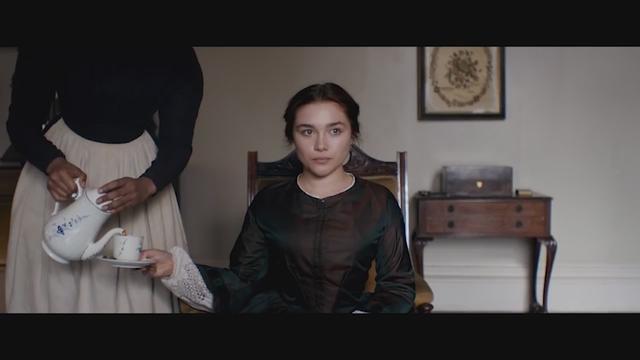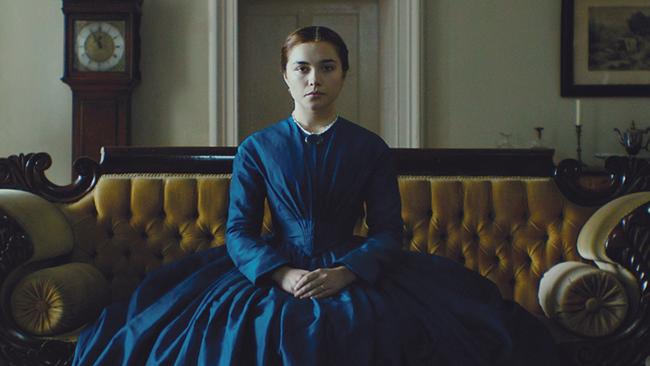Lady Macbeth is a hauntingly confronting experience
A PERIOD drama based on a Russian novel based on Shakespeare doesn’t sound like a thrill ride, but don’t be fooled. It’s excellent.

New Movies
Don't miss out on the headlines from New Movies. Followed categories will be added to My News.
THERE are moments in Lady Macbeth that should shock you, and in a lesser film, they would.
But instead of being one-dimensionally abhorrent, its violence only adds to the sense of unease that pervades the entire film, something that works out to be more powerful than mere shock.
Adapted from an 1865 Russian novella, Lady Macbeth of the Mtsensk District by Nikolai Leskov, director William Olroyd transposes the action to rural England.
It opens on Katherine (Florence Pugh) in a white lace gown, a confused brideling as she’s married off to a considerably older man, traded in some deal involving “worthless” land.
Her new husband (Paul Hilton) is cold and uninterested in the bedroom, and restricts her movements to the creaking house she shares with him and her dismissive father-in-law (Christopher Fairbanks).
Katherine spends her days getting dressed and then struggling to remain awake as lethargy and boredom overwhelms her as her father-in-law berates her for not doing her “wife duties”.
When her husband and father-in-law both leave the house for an extended period of time, she’s allowed her first taste of freedom, such as that was for a woman in the 19th century. Left alone with an estate full of servants, she roams the moors, the ferocious winds blowing around her.
One day, she chances upon an ugly scene in which the male workers, led by new footman Sebastian (Cosmo Jarvis), has tied up her maid Anna (Naomi Ackie) in a makeshift sack and hung from the ceiling like livestock.
Katherine is immediately attracted to Sebastian’s raw passion, and probably by the forbidden fruit he represents, not just because of her marital status but also by his “otherness” — his skin colour and social status.

Their affair propels her already defiant nature — she declared early on that she’s “thick-skinned” — and her obsession with him leads to some appalling acts.
As a Shakespearean figure, Lady Macbeth has been tagged as a femme fatale, an ambitious woman who eggs her husband on to commit murder for the sake of power, being driven mad by the guilt.
Katherine doesn’t, for the most part, manipulate a man for her own ends and there’s something to be said for the agency she takes, even if that empowerment comes with a body count. And the film has much to say about the power structures that indict people of colour and those with low social status. God help you if you’re a black servant woman.
In his feature debut, Olroyd fearlessly embraces Lady Macbeth’s formality, largely thanks to the director’s theatre and opera roots. He positions the camera to focus on the space with scenes set up to seem like museum pieces — this allows characters to move through and in and out of the frame. Couple that with the lack of score (save for the final moments) and the effect is hypnotic.
Pugh’s performance is eerie and mesmerising — you can’t tear your eyes away, she demands to be watched. It’s the contradictions, the vulnerability and casual ruthlessness, that Pugh layers in Katherine that ensures she’s not a complete monster. Here, context matters.
Lady Macbeth will not end up being seen by many — a period film based on a Russian novel based on Shakespeare isn’t a box office draw — which is a shame because it’s just such a hauntingly confronting film.
Rating: 4/5
Lady Macbeth is in cinemas from today.
Continue the conversation on Twitter with @wenleima.
Originally published as Lady Macbeth is a hauntingly confronting experience



